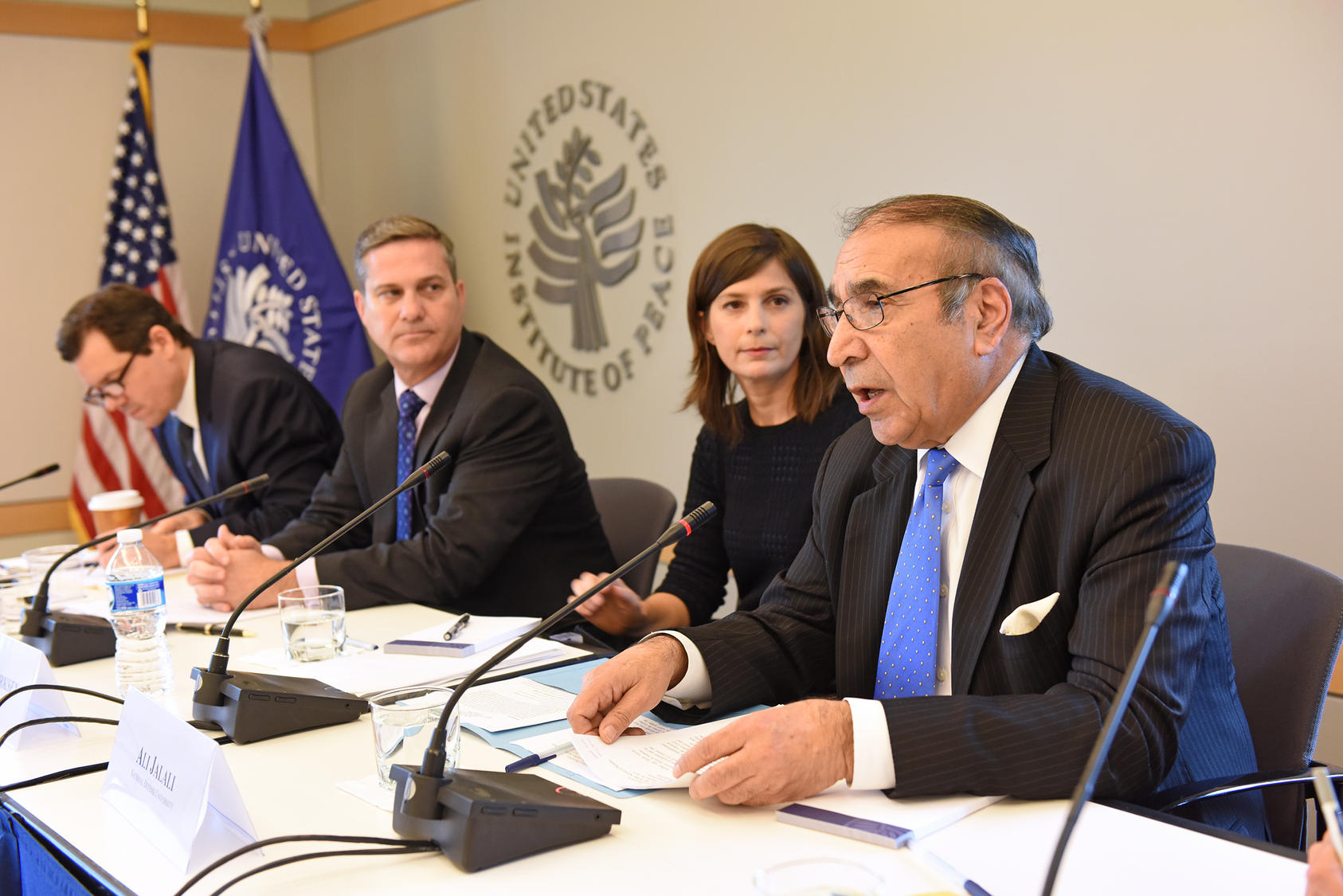Implications for Afghanistan: The Taliban Seizure of Kunduz
For Washington and Kabul, Renewed Questions of Stability
The Taliban’s two-week seizure of Kunduz in September revealed weaknesses in Afghanistan’s security forces and unforeseen Taliban capabilities. It has generated deep concerns about stability, security, the future of the peace process, and underappreciated humanitarian issues. On October 28, USIP convened experts to analyze Kunduz and its fallout, including President Obama’s decision to extend the U.S. troop presence in Afghanistan beyond 2016.

The fall of the northern city of Kunduz to the Taliban ignited serious concerns about the ability of the Afghan National Security Forces to maintain stability in their country. While Afghan forces recaptured Kunduz with international support, Taliban forces continue to pressure other northern cities while carrying out operations elsewhere.
The government in Kabul and its backers are re-evaluating how security is provided. President Obama announced a reversal of his decision to remove all U.S. combat troops from Afghanistan by the end of 2016, saying that 5,500 would remain. While that decision had been under long discussion, it seems that Kunduz forced the issue. Meanwhile, pro-government factional leaders are urging Afghan President Ashraf Ghani to rearm local militias against the Taliban. Many analysts say predatory actions by existing militias were part of the problem in Kunduz.
Since the takeover, reports of human rights abuses and humanitarian problems are emerging from Kunduz, and the Afghan government and international community seem ill-prepared to deal with the humanitarian crisis.
Finally, the fall of Kunduz was a blow to Afghanistan’s “national unity” government, which so far has given the impression of being more focused on internal rivalries than on its core responsibilities. How did divisions within the government contribute to the fall of Kunduz? And might the city’s ordeal prompt better internal coordination?
On Wednesday October 28, USIP held a discussion among experts on these questions and what they may mean for stability in Afghanistan.
Panelists
Belquis Ahmadi
Senior Program Officer Asia Center, U.S. Institute of Peace
Deedee Derksen
King's College London
Author, The Politics of Disarmament and Rearmament in Afghanistan
Ali Jalali
Distinguished Professor, National Defense University
Former Interior Minister of Afghanistan
Christopher D. Kolenda
Former Senior Advisor on Afghanistan and Pakistan, Department of Defense
Scott Smith, Moderator
Director for Afghanistan & Central Asia, U.S. Institute of Peace



